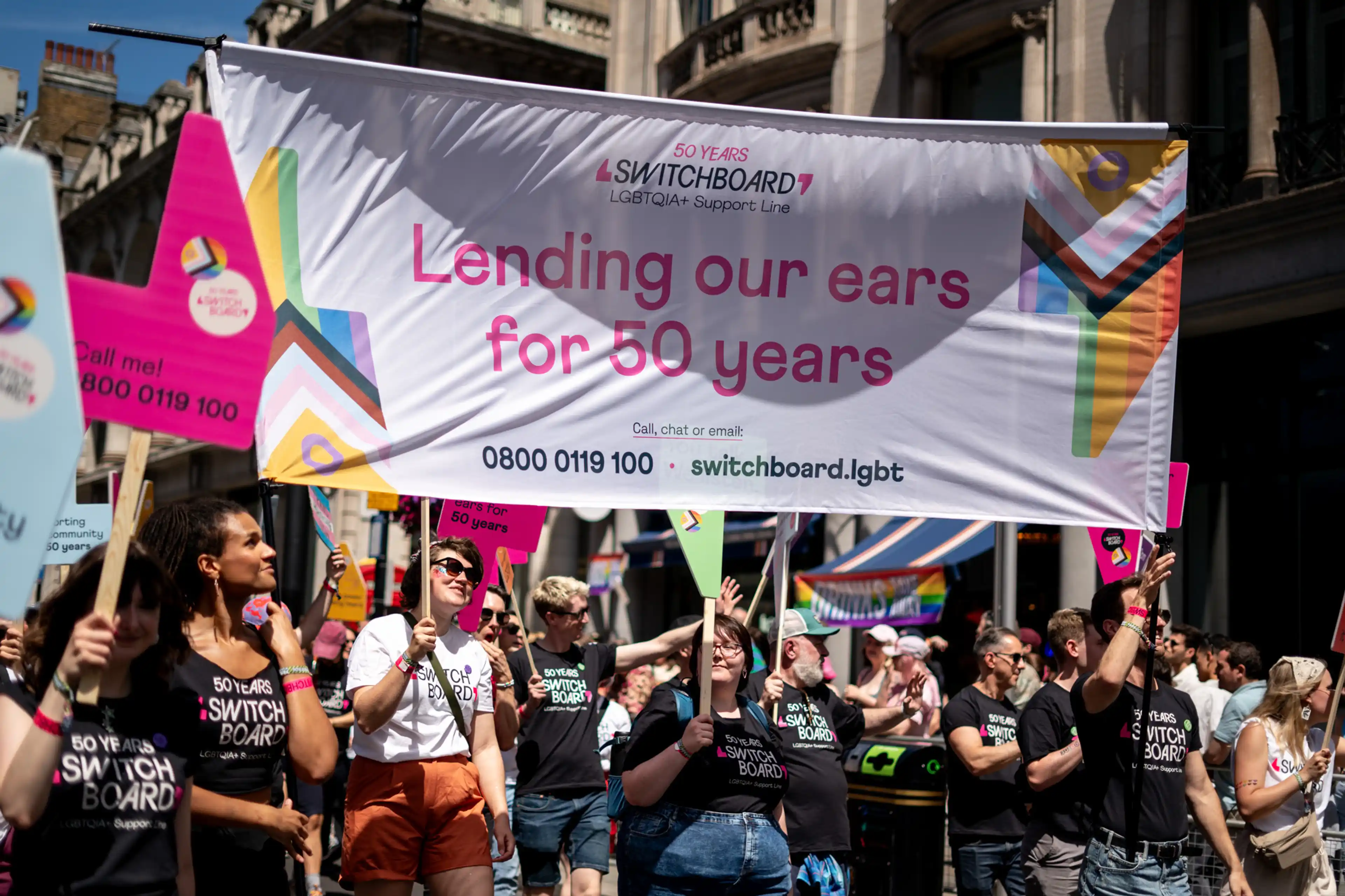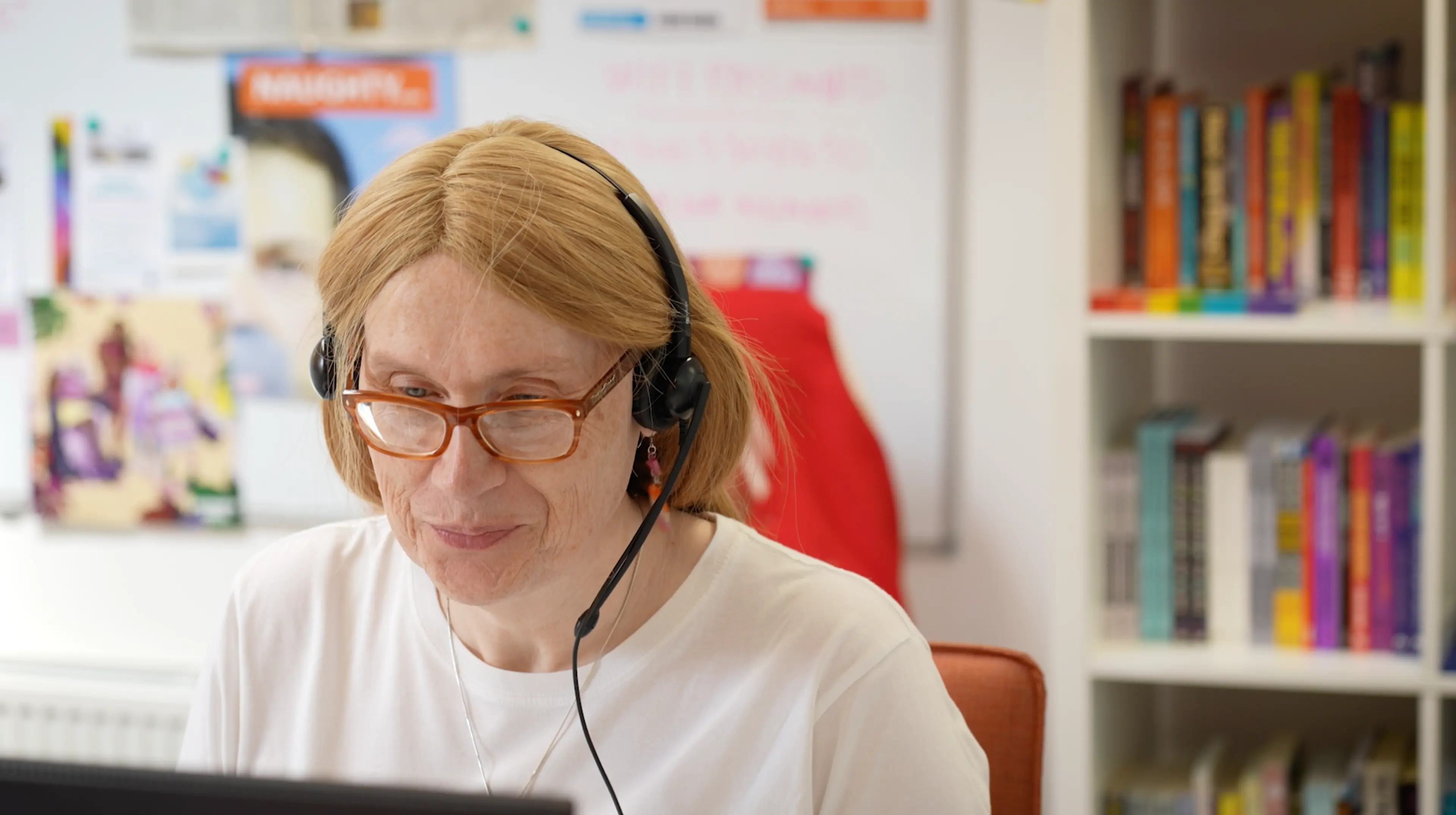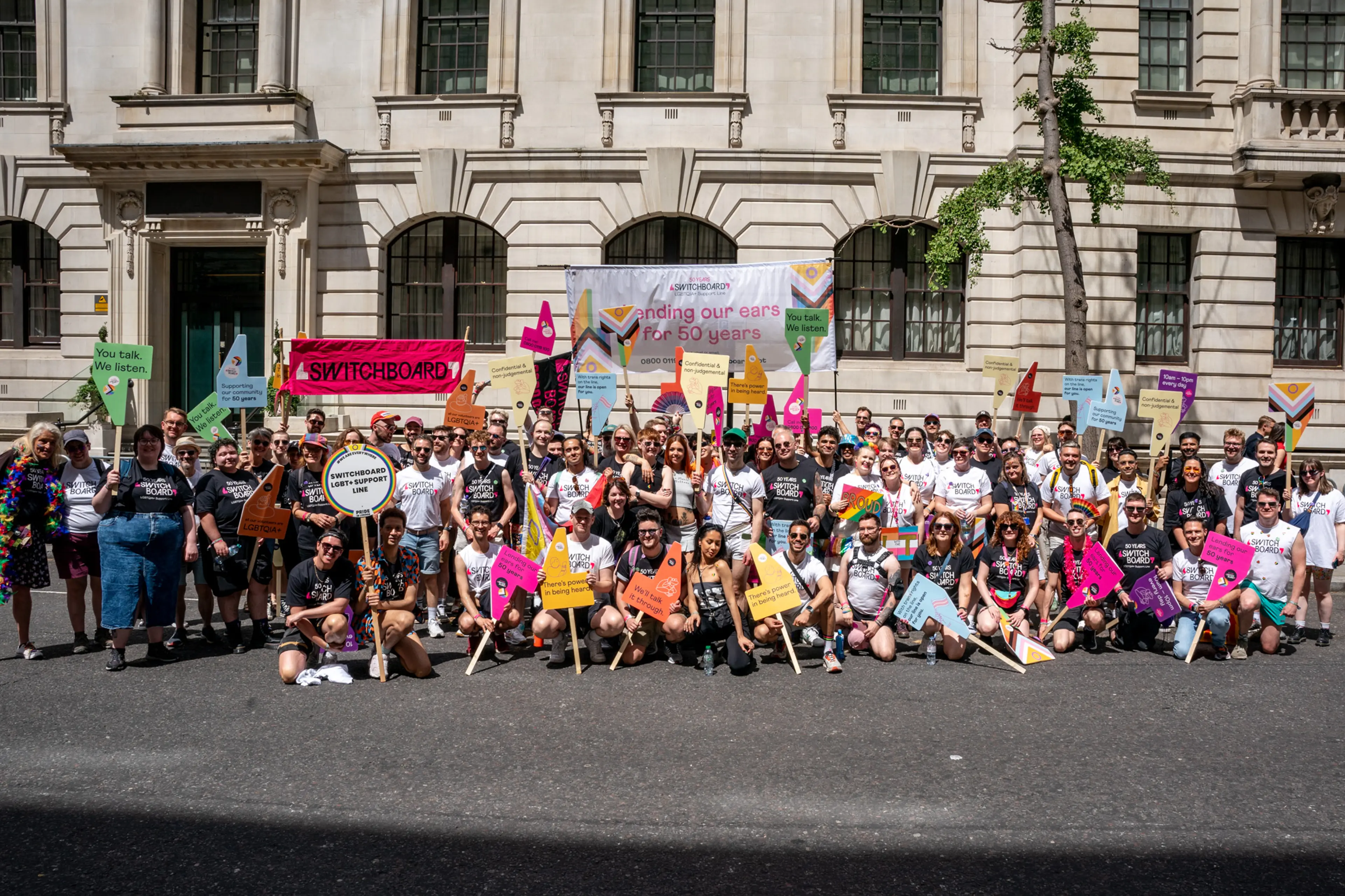
About Switchboard
Switchboard has been equipping the LGBTQIA+ community and its allies with information and support for five decades. Through all the crises, celebrations and changing attitudes, we’ve been a clear and unmistakable voice. Today, we continue to channel this spirit in ways that champion our community, spread vital knowledge and inspire change.
We are non-judgmental.
And whatever you tell us will stay between us.
We talk things through.
So that you have the options to make your own decisions.
We are all LGBTQIA+.
We know navigating some of these issues can be difficult.
Switchboard is the national LGBTQIA+ support line. For anyone, anywhere in the country, at any point in their journey. We can discuss anything related to sexuality and gender identity. Whether it’s sexual health, relationships or just the way you’re feeling. This is your space – to explore, talk and be truly heard.
All our volunteers identify as LGBTQIA+ and know how difficult navigating some of these issues can be. We talk things through, so that you have the options to make your own decisions. Switchboard is a non-judgmental space, and whatever you tell us will stay between us.
Our support line is completely free, and available wherever you feel most comfortable – whether that’s on the phone, via chat or email. 10am-10pm every single day.

Meet the Team
MORE HERESwitchboard's History
Switchboard (then, London Gay Switchboard) was founded on March 4th 1974. The information and support helpline operated for 5 hours every evening above a bookshop in London near Kings Cross station. Due to rapidly increasing demand, it very quickly became 24-hours.
The service was established in response to a call to organise a ‘helpline’ by the Gay Liberation Front and Gay News, who were receiving an ever-increasing number of calls to their offices. Initially helping individuals to navigate the LGBTQIA+ scene that began to emerge after the partial decriminalisation of male homosexuality, it has provided for members of the community through police raids, the HIV/AIDS crisis, Section 28 and more.
We estimate that Switchboard has provided support and information to more than 4 million people since our service began in 1974. Today, our volunteers have around 15,000 every year.
Throughout our history, we have been at the forefront of supporting the community in facing the issues of the day. Through all the crises, celebrations and changing attitudes, Switchboard has been a clear and unmistakable voice.
Our values
Non-judgemental
Inclusive
Committed
Empowering
Supportive
Informed
